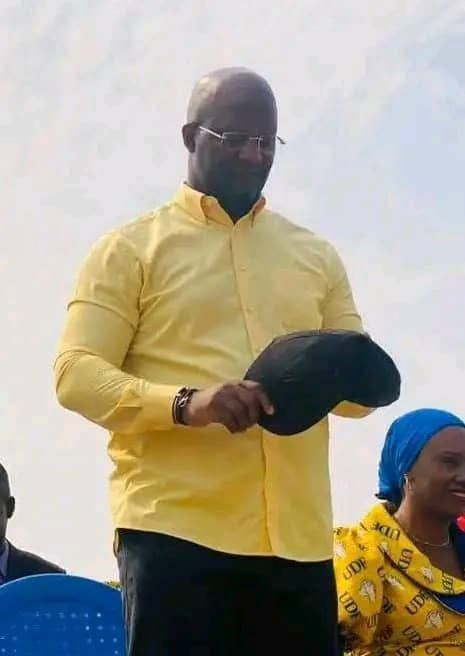By Burnett Munthali
Atupele Muluzi’s last major rally was held in Mangochi, where he told supporters that his number one political enemy is the Democratic Progressive Party (DPP).
The United Democratic Front (UDF) has only managed to secure one Member of Parliament in the Mangochi district.
That single MP, Aisha Mambo, openly declared her support for former president Arthur Peter Mutharika (APM).
Her position has sent a strong message that the UDF’s influence in the district is rapidly shrinking.

Other politicians who continue to align themselves with Atupele Muluzi risk losing ground as the political tide in the region shifts.
Based on recent election results, Mangochi and Machinga remain strongholds of the DPP.
The party has consistently performed well in these districts, consolidating its grassroots support and retaining voter loyalty.
For Atupele Muluzi, this reality presents a serious obstacle in his attempt to reposition the UDF as a formidable force.
Analysts argue that without breaking DPP dominance in Mangochi and Machinga, the UDF’s chances of regaining national relevance remain slim.
Atupele may therefore need to explore new political strategies if he is to expand beyond his shrinking base.
One potential avenue is to seek support in other regions, such as T/A Masula, where the UDF might carve out an alternative stronghold.
However, building new political ground will not be easy, given the stiff competition from both the DPP and the Malawi Congress Party (MCP).
The dynamics in Mangochi and Machinga underscore the UDF’s struggle for survival in a political landscape dominated by stronger and better-organized parties.
Unless Atupele finds a way to rebuild alliances and win back public trust, the UDF risks fading further into political irrelevance.
For now, the DPP remains the dominant force in Mangochi and Machinga, leaving Atupele with the difficult task of finding new ground on which to rebuild his political career.
*Historical Context: From Bakili’s Stronghold to Atupele’s Decline*
In the 1990s and early 2000s, Mangochi was the undisputed heartland of the UDF under the leadership of Bakili Muluzi.
The region overwhelmingly supported Malawi’s first multiparty president, who hailed from the district, giving the UDF a loyal and reliable voter base for years.
During Bakili Muluzi’s tenure, the UDF not only dominated Mangochi but also extended its influence to other parts of the Southern Region.
The party’s dominance was so strong that winning in Mangochi was once seen as a foregone conclusion.
However, the rise of the DPP under Bingu wa Mutharika shifted political dynamics, as the party gradually built structures and won over voters in the region.
By the time Atupele Muluzi took over the UDF’s leadership, the once unshakable stronghold had already begun to erode.
Now, with the DPP entrenched in Mangochi and Machinga, the decline of the UDF in its birthplace highlights just how much the political landscape has changed since Bakili Muluzi’s era.
The contrast between Bakili’s dominance and Atupele’s current struggles underscores the challenge of sustaining political legacies in Malawi’s shifting democratic space.
*Concluding Analysis: Atupele vs. Bakili – Style and Legacy*
Bakili Muluzi’s political style was characterized by charisma, personal connections, and a strong grassroots presence that made him a unifying figure in Mangochi.
He was able to cultivate loyalty by blending national politics with local engagement, ensuring that the UDF’s message resonated at both levels.
Atupele Muluzi, by contrast, has adopted a more technocratic and modern political approach, focusing on policy and reform rather than personal charisma.
While Atupele’s style appeals to urban and educated voters, it has struggled to translate into widespread support in rural strongholds like Mangochi and Machinga.
The generational shift, changing voter expectations, and the rise of well-organized rivals like the DPP have further challenged his ability to replicate his father’s success.
Analysts suggest that the UDF’s decline is not only a reflection of political competition but also of the gap between Atupele’s leadership style and the personal, relational politics that once cemented Bakili’s dominance.
For Atupele to revitalize the UDF, he may need to blend his modern reformist approach with a renewed focus on grassroots mobilization and local engagement.
Without this balance, the legacy of the UDF risks fading further, leaving Mangochi and Machinga firmly in the hands of rival parties.
*Strategic Recommendations: Rebuilding the UDF*
To regain political relevance ahead of the next elections, Atupele Muluzi could focus on consolidating support in areas outside the traditional DPP strongholds, such as T/A Masula and neighboring districts where the UDF still has residual influence.
Investing in grassroots engagement, including community meetings, local development initiatives, and youth empowerment programs, could help rebuild trust among rural voters who feel neglected.
Atupele should also strengthen alliances with smaller political parties and influential local leaders to create a broader coalition capable of challenging DPP dominance.
Targeting urban and peri-urban constituencies with a message of technocratic reform, economic opportunity, and good governance could attract younger, educated voters who are more receptive to his policy-focused approach.
Finally, the UDF must craft a clear narrative that ties Atupele’s modern reformist vision to the legacy of his father, showing continuity while addressing current political and economic challenges.
By blending these strategies—grassroots mobilization, coalition-building, and urban outreach—Atupele could realistically carve out a revitalized UDF base capable of competing meaningfully in the next election cycle.



